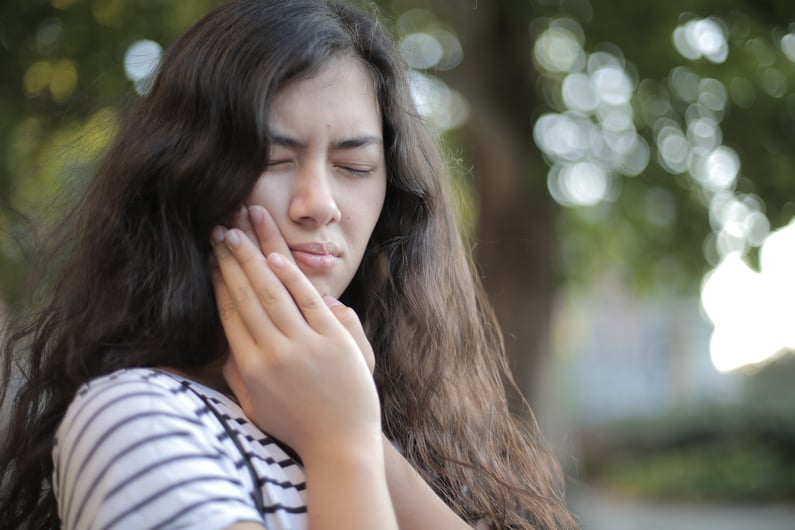Bruxism is a condition where a person grinds their teeth – teeth in the lower jaw rub against those in the upper jaw.
Bruxism is a fairly common condition caused by the involuntary contraction of jaw muscles used in chewing. It is also referred to as a parafunction, as opposed to a function (physiological movements that mainly involve chewing).
Bruxism usually happens at night and can cause a range of problems like worn teeth, muscle pain, jaw or joint pain and headaches.
It is often a partner or a parent who notices that a patient is grinding their teeth while they sleep.

What causes bruxism?
It is difficult to identify the cause of bruxism. Studies have shown that many factors, like anxiety, stress, emotional or psychological issues and sleep disorders can contribute to the problem.
Bruxism can even be caused by excessive consumption of alcohol, caffeine or by using drugs, but there is often no specific cause.
The symptoms of bruxism
Bruxism manifests in teeth grinding. This can cause symptoms including:
- pain around the ears
- increased tooth sensitivity, especially due to the removal of the enamel layer
- jaw pain
- muscle pain
- joint pain or earache
- headaches
- damaged and worn teeth that may chip or break
How to prevent bruxism
Strategies for preventing bruxism include ways to reduce stress, like listening to music, taking a warm bath, practising moderate physical activity regularly and avoiding alcohol, coffee and tea after dinner.
A dental visit can diagnose bruxism, as the dentist will examine the health of your teeth and check for wear, damage, muscle and joint pain.
Therapy and treatment
Treating bruxism focuses on protecting teeth, while reducing muscle tension and the pain it can cause.
In particular, it involves using a splint or mouthguard worn over the teeth at night to prevent teeth grinding.
Correct information, awareness of the problem, relaxation and diminishing overall stress can help reduce the causes of bruxism (and other parafunctions).